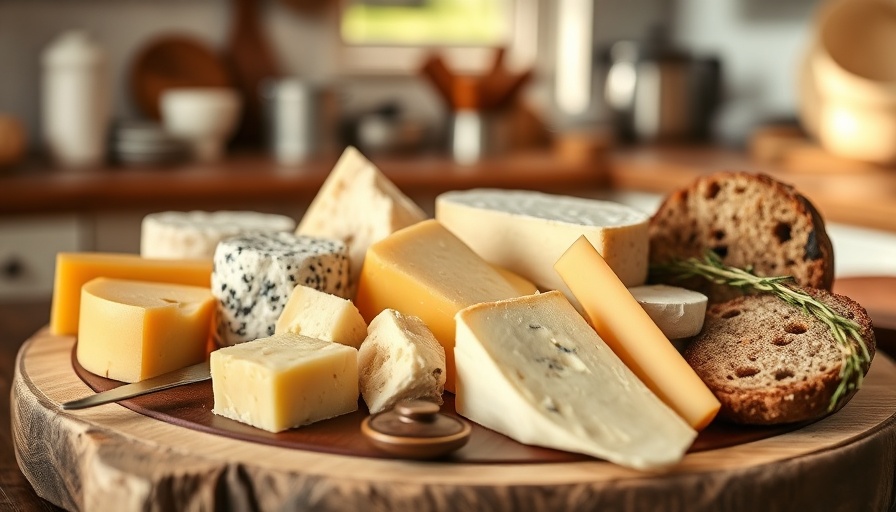
The Intriguing Connection Between Cheese and Nightmares
In a world where our eating habits intersect directly with our sleeping patterns, the belief that consuming cheese before bed can lead to nightmares has captured public intrigue. While many swear by this idea, a recent study sheds light on whether there's any scientific backing to this claim.
Research Insights on Diet and Sleep
A study conducted with over 1,000 undergraduate psychology students in Canada revealed fascinating insights into how eating habits impact sleep and dream quality. According to the data, around 40% of participants felt that certain foods influenced their sleeping experience. A notable 25% associated particular foods with worsening sleep, while 20% believed some aided sleep improvement. Interestingly, only 5.5% thought their diet influenced dream nature, with many attributing strange or unsettling dreams to dairy products like cheese.
This indicates a possible link between food consumption and sleep disturbances, but it’s vital to recall that these are self-reported findings. The participants’ inherent familiarity with the myth of cheese-induced nightmares could play a role in their perceptions, potentially exaggerating the connection.
Why Cheese Might Disrupt Your Sleep
The science doesn't directly support the idea that cheese leads to nightmares. Instead, it points towards digestion issues. As diurnal creatures, our bodies are naturally programmed to sleep at night. Consuming cheese—or any heavy food—before bedtime challenges our digestive system, which is not operating ideally during those hours. Foods high in fat and protein take longer to digest, which can disrupt sleep quality.
The Psychological Angle of Food and Dreams
While the physiological reasons for sleep disturbances due to cheese consumption are compelling, the psychological aspects cannot be ignored. The folklore surrounding cheese and nightmares may lead to a self-fulfilling prophecy where people expect bad dreams following cheese consumption. This mental expectation can come true, highlighting the powerful role the mind plays in sleep experiences.
Food Choices for Better Sleep
If you’re concerned about sleep quality, consider substituting cheese with alternatives known for promoting better sleep. Foods such as fruits, vegetables, and herbal teas generally encourage restful nights. Not only do they contribute to better overall health, but these choices might also positively influence sleep quality and dream nature.
Your Personal Sleep Experiment
If you're curious about how food affects your sleep, why not try an experiment? Start a sleep diary to record what you eat and how you sleep. This could provide insights into your unique dietary triggers and help you identify patterns or foods that might be beneficial or detrimental to your rest.
Moving Forward: Prioritizing Sleep Health
In conclusion, while the myth that cheese causes nightmares may not be entirely rooted in reality, it does underline a broader truth about diet, sleep, and the intricate dance between mind and body. Understanding how what you consume influences not only your physical health but your mental well-being and sleep can empower you to make better choices for restful nights and rejuvenated mornings.
As you explore your own diet and its connection to sleep, consider your relationship with food and the psychological constructs that shape your experiences. Our wellness journeys are deeply personal, and understanding this relationship may lead to better choices, enhanced sleep, and a brisk recovery after restful nights. Adopting mindful eating habits is a practical step toward improved sleep health.
 Add Row
Add Row  Add
Add 




Write A Comment